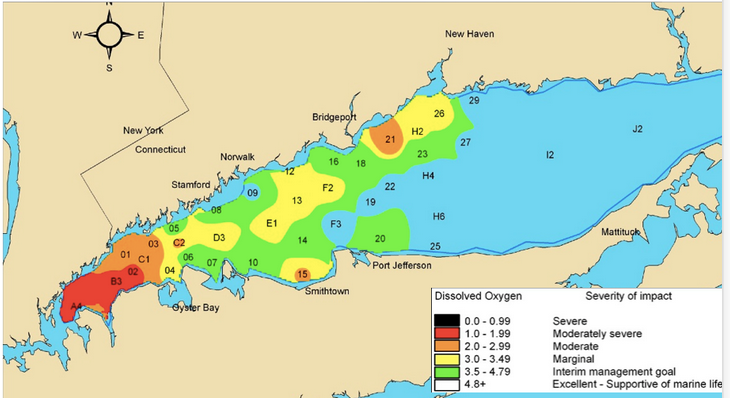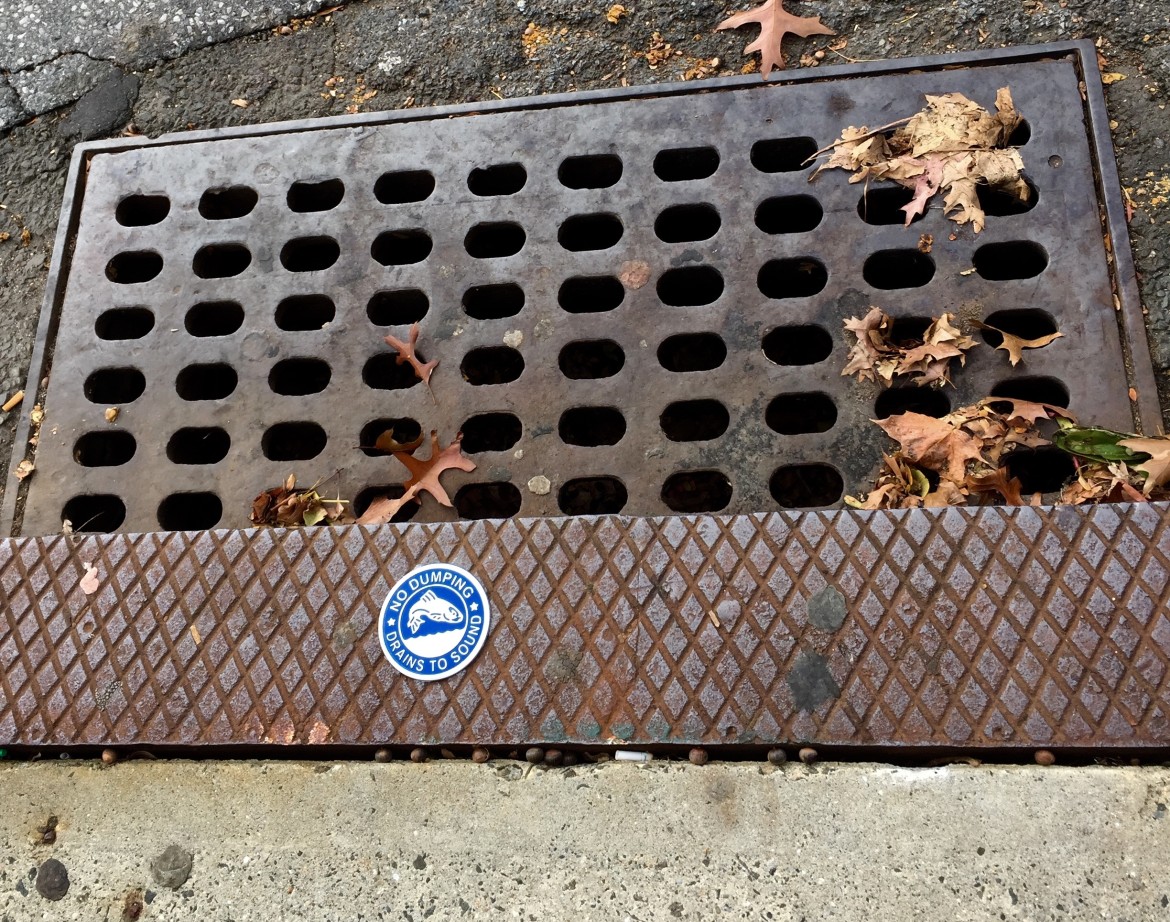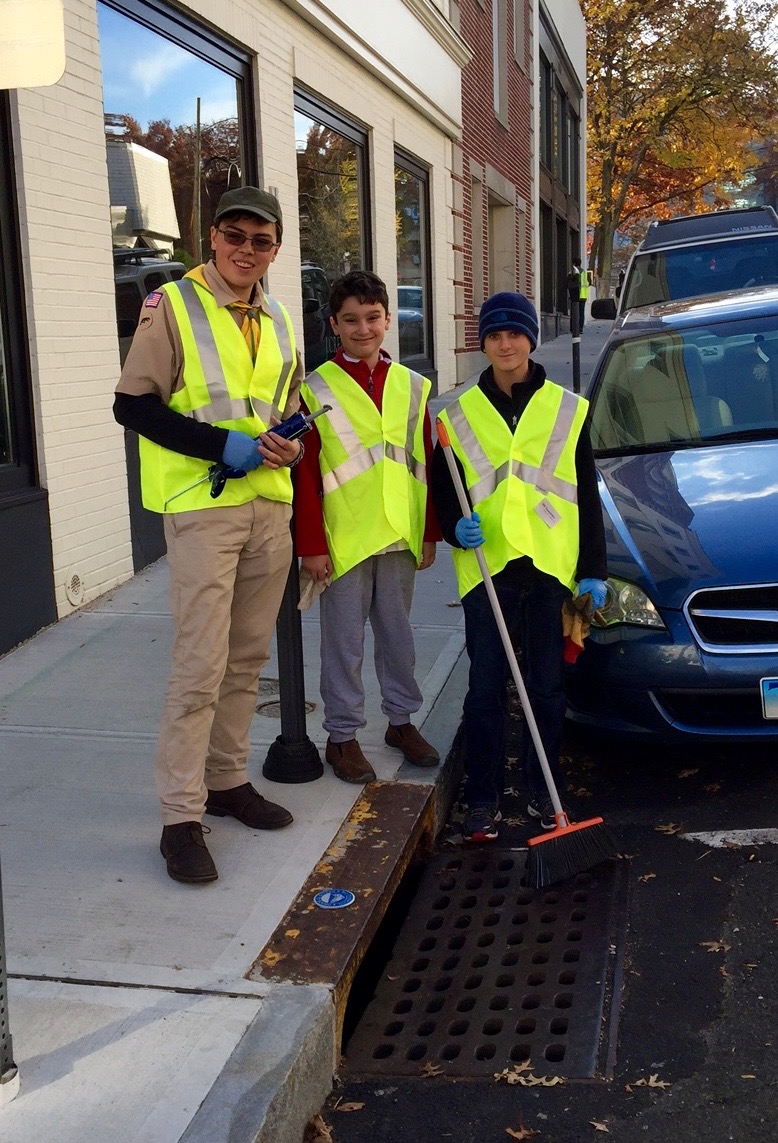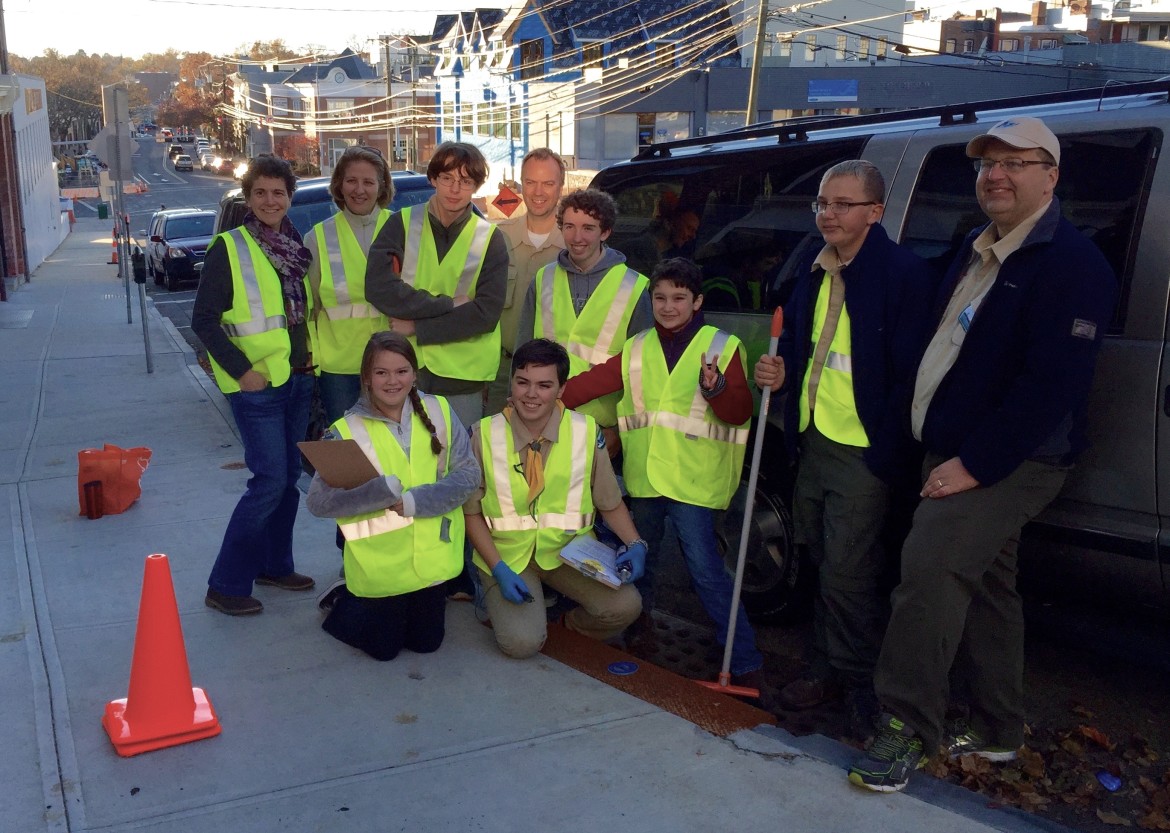When Bennett Hawley learned about the high Hypoxia levels of the Long Island Sound, he knew he wanted to do his part to help bring awareness to this problem. Bennett, a freshman at Greenwich High School and a Life Scout with Greenwich BSA Troop 9, undertook a public awareness campaign this fall for his Boy Scout Eagle Project.
The public awareness campaign includes working with the media, presentations to students and scouts, flyers, and a pamphlet that can be found at all Greenwich public libraries.
In a pamphlet he created, Bennett explains Hypoxia, the condition in which oxygen levels decrease to the point where organisms cannot survive, essentially creating dead spots in the Long Island Sound.
“Greenwich and Westchester are in the orange-red zone because the Sound narrows at a very urban area within its proximity to New York City. The map below shows the severity of impact as reported by the L.I. Sound 2013 Study.” The recent study conducted by the Long Island Sound Study and supported by the EPA, shows that 35% of the L.I. Sound’s wetlands have been destroyed due to pollution, and they are still shrinking.

Additionally, over the course of two weekends, Bennett and his fellow scouts could be seen affixing 100 blue and silver medallions to catch basins in the areas of Greenwich Ave, Mason Ave, Steamboat Ave, and on Hillside Ave by the Greenwich High School.

One of 100 blue and silver medallions attached to catch basins in the areas of Greenwich Ave, Mason Ave, Steamboat Ave, and on Hillside Ave by the Greenwich High School.
These medallions read, “No Dumping-Drains to the Sound”. He said, “All these areas have a lot of pedestrian traffic on the sidewalks. The medallions act to educate and remind people not to throw litter into the catch basins.”
A resident on Hillside Avenue shared his thoughts while the scouts affixed a medallion to his nearby drain, “We are very careful of what goes into our drains. We no longer use fertilizers and pesticides on our lawn, but I do worry about all the salt and ice melting chemicals that are required to keep the sidewalk (by the high school) clean in the winter.”

Bennett and his fellow scouts could be seen affixing 100 blue and silver medallions to catch basins in the areas of Greenwich Ave, Mason Ave, Steamboat Ave, and on Hillside Ave by the Greenwich High School.
The planning went smoothly and required Bennett to work with Greenwich Town officials across departments of Conservation, Highway, and Civil Engineering.
“Most people don’t understand that most of our storm drains lead to a stream or directly to Long Island Sound,” said Denise Savageau, Greenwich’s Conservation Director. “Controlling pollution from storm water runoff is important to water quality and Bennett’s project serves to remind folks that what goes on the ground, and into the catch basins, goes to Long Island Sound. This is a great conservation project for our community.”

Bennett and his fellow scouts could be seen affixing 100 blue and silver medallions to catch basins in the areas of Greenwich Ave, Mason Ave, Steamboat Ave, and on Hillside Ave by the Greenwich High School.
Peter Kurpeaswki, Greenwich’s Highway Planning and Program Manage thanked Bennett on completing the Greenwich Storm Drainage Awareness Program for his Eagle Scout project. “Storm water pollution is becoming very important issue for the environment. Storm water management starts with even the smallest improvements and will have a positive impact for everyone,” Kurpeaswki said. “Actions such as his Eagle project can make the difference in improving the overall storm water management and awareness within our community.”
Even organic material such as grass clippings and leaves are considered pollution and should not go in the catch basins. The debris should not go to the Sound, but it also clogs up the storm drains and causes flooding.
While this initiative is on a local level, the bigger problem has state-level attention. It was reported that US Senators Richard Blumenthal and Chris Murphy have introduced legislation to continue $65 million in annual funding for improving the L.I. Sound.
Many other state and national organizations are invested in conservation efforts of Long Island Sound, such as Save the Sound, U.S. Environmental Protection Agency-L.I. Sound, The Nature Conservancy, National Oceanic Atmospheric Administration-L.I. Sound, and Citizen Campaign.org, as well as local-level municipalities water pollution control facilities.
“Too much nitrogen, from outdated septic systems, sewage treatment plants and fertilizers, creates algae blooms and reduces oxygen, making it difficult for marine life to survive in harbors and bays around Long Island Sound,” said Holly Drinkuth, Director of Outreach and Watershed Programs for The Nature Conservancy in Connecticut. “Increasing people’s awareness of the problem is necessary to help solve it, and initiatives like Bennett’s are an important part of that effort. We’re impressed, and we’re grateful for the work he’s doing.”
Eagle Stormwater Pamphlet offers additional ways that people can do their part to prevent storm water runoff which include planting a rain garden to collect rainwater before it enters into a catch basin or limiting the amount of impervious surfaces as there are new pavers that allow water to seep through them.
Take the survey:
Bennett also created a survey link where you can test your knowledge: http://tinyurl.com/kmj2v88 (Editor’s Note: it takes 2 minutes and will likely leave you shocked!)
While the path to earning Eagle Rank is individual, one requirement for all Scouts is to plan, develop, and demonstrate leadership to others in a service project helpful to the community.
“I wanted to do my part to bring awareness to a problem and to help improve the water quality of our most precious water resource,” Bennett said. “The Long Island Sound is vital to our lives. It is Greenwich’s backyard – where we sail, swim, play on the beach, and fish – and what makes living here so great.”
See also:
Eagle Project Gives American Eel a Workaround for Some of Greenwich’s 43 Dams
More on Bennett Hawley:
Board of Ed Recognizes 8th Grade Science Standout!
Greenwich Students Excel at 2015 CT Science & Engineering Fair

Email news tips to Greenwich Free Press editor [email protected]
Like us on Facebook
Twitter @GWCHFreePress